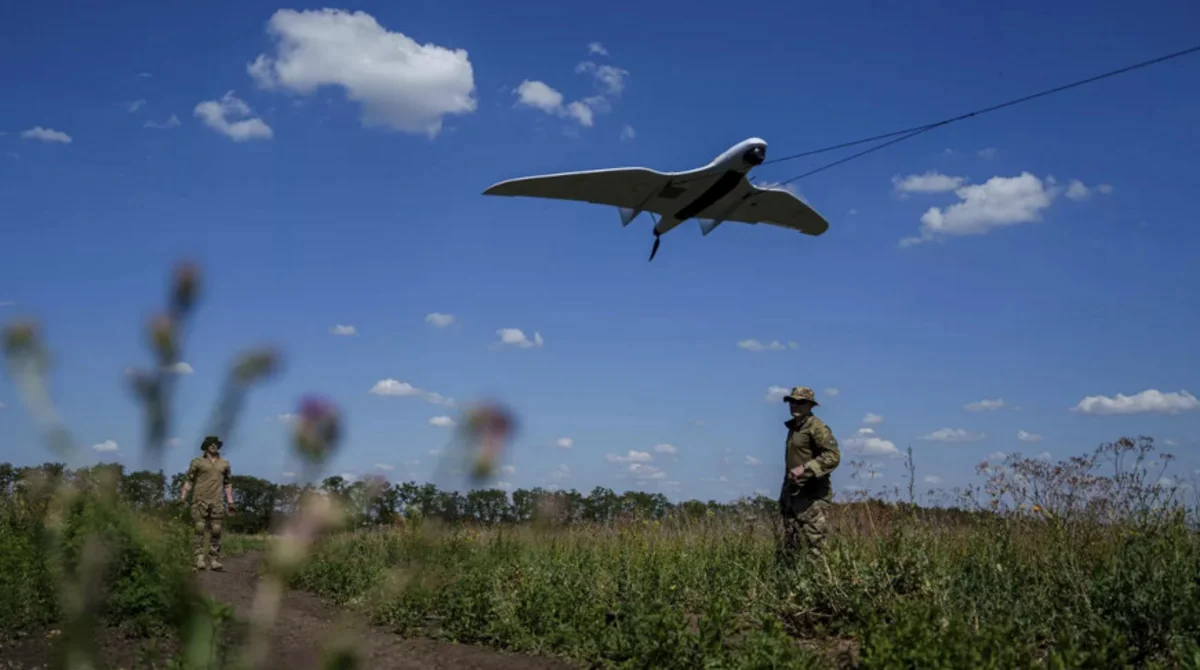Ukraine’s ‘dragon drones’ rain molten metal on Russian positions
- 08 September, 2024
- 08:22

Ukraine appears to be calling on a fleet of fire-spewing “dragon drones” in its war with Russian invaders, putting a modern twist on a munition used to horrific effect in both world wars, Report informs via CNN.
A series of videos posted on social media, including on Telegram from the Ukrainian Defense Ministry on Wednesday, show the low-flying drones dropping torrents of fire – actually molten metal – onto Russian-held positions in tree lines.
The white-hot mixture of aluminum powder and iron oxide, called thermite, burns at temperatures up to 4,000 degrees Fahrenheit (2,200 degrees Celsius). It can quickly burn off trees and vegetation giving cover to Russian troops, if not killing or disabling the troops outright.
As it falls from the drone, the thermite resembles the fire coming from the mouth of the mythical dragon, giving the drones their nickname.
“Strike Drones are our wings of vengeance, bringing fire straight from the sky!” a social media post from Ukraine’s 60th Mechanized Brigade said.
“They become a real threat to the enemy, burning his positions with an accuracy that no other weapon can achieve,” the post continued.
Creating that kind of fear is likely the main effect of Ukraine’s thermite drones, according to Nicholas Drummond, a defense industry analyst specializing in land warfare and a former British Army officer.
“It is very nasty stuff. Using a drone to deliver it is quite innovative. But used in that way its effect will have been psychological more than physical,” Drummond told CNN.
“I understand that Ukraine only possesses a limited capacity to deliver a thermite effect, so this is a niche capability rather than new mainstream weapon,” he said.
But he acknowledges the terror thermite can create.
“I would not have liked to have been on the receiving end,” Drummond said.
Thermite can easily burn through almost anything, including metal, so there’s little protection from it.
It was discovered by a German chemist is the 1890s and was originally used to weld railroad tracks.
But its military potency soon became apparent, with the Germans dropping it from zeppelins as bombs over Britain in World War I, according to a history from McGill University in Montreal.
Both Germany and the Allies used thermite aerial bombs in World War II, and they also utilized it to disable captured artillery pieces, putting thermite into the breech and melting the weapon shut from the inside.
